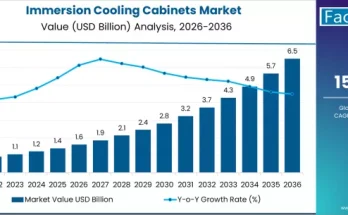The next big thing in wireless technology networking is 5G. It is the fifth generation of wireless technology, to put it simply. Technologies such as 4 G were capable of connecting humans to the internet and among themselves but with the rise of 5G, this won’t be enough.
Technology in its fifth generation is anticipated to be more advanced, faster, and larger than the previous generation. The terms like virtual reality, Internet of Things and Artificial Intelligence will be unlocked with the emergence of 5G.
The purpose of 5G architecture is to connect everything and everyone, including people, buildings, cities, sensors, smartphones, robots, and drones. 5G design is built on a significantly higher next-generation technology plane. 5G is known to provide faster speed, improved reliability, and lower latency than the previous generation.
The consumers on average month are estimated to consume 11GB of data with smartphones as the majority of video traffic is streamed from mobile at consumer ends. While businesses use 5G networks in terms of smart factories to increase the effect of industrial Ethernet and operational precision.
The 5G services market worldwide has a value of US$ 48 billion in 2022 and is projected to grow at a CAGR of 55% from 2023 to 2033, reaching a value of US$ 3,827 billion. The market size of 5G services is expanding as a result of the rising demand for wireless networks. From 2017 to 2021, the 5G services industry experienced a CAGR of 28%. Download a free sample of the report.
The following brands in the industry have the majority of patents and occupied a large revenue share in the 5G market:
Huawei Technologies Co. Ltd
As per the competitive landscape assessment survey, Huawei 5G core services are the strongest and are rated as the leader among 5G technology solutions worldwide. This is the fourth consecutive time since 2019 that Huawei 5G Core has been rated as the world’s best. In South America and the crucial Southeast Asian area, where Huawei has a 40% market share, Huawei leads the industry. Huawei owns 70% of the 4G base stations in Africa, securing a position that will be challenging to overtake when the 5G service is introduced.
Samsung
In 2018, Samsung announced a partnership with US company Verizon, where users could enjoy 5G services earliest. The industry had anticipated that 5G services will begin two years after Samsung delivered Fixed Wireless Access (FWA) network solutions based on 5G technology to the top mobile network operator in the United States.
Intel
The IT major company in Dec 2022, announced a collaboration with the HCL tech company and Mavenir to deliver 5G solutions for enterprises. These leaders set to provide scalable 5G networks for communication service providers and cross-vertical organizations. Airtel and Intel have joined hands to provide cutting-edge technology experience in India which is anticipated to contribute to the development of 5G infrastructure in India.
Nokia
In May 2022, the company joined hands with a Korean local network company ‘Contela’ to provide industry-leading customized private 5G solutions to Korean public sector companies, this is anticipated to improvise Korean network solutions in upcoming years. For innovative manufacturing solutions in Brazil, Nokia and Flex will combine their expertise in Industry 4.0 and 5G SA private wireless.


